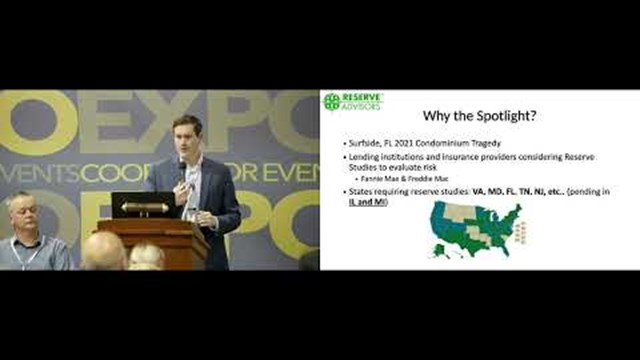In a world where the cost of services and goods are generally rising, even in the absence of any substantive inflation, co-op and condominium boards and management are always looking for ways to hold the line on increasing monthly costs. The question is, is the short-term benefit to owners of holding the line on monthly carrying charges ultimately detrimental to the financial health of a condominium association or co-op corporation?
Operations vs. Capital Expenses
Perhaps the best starting point is to reiterate the difference in two major categories of expenses: operations vs. capital expenses. Simply stated, operational expenses are line items such as labor, real estate taxes, energy costs, and insurance, to name some of the major ones. These are expenses incurred on a regular, recurring basis and funded through monthly common area or maintenance charges.
By contrast, capital expenses relate to the useful life and replacement of building systems such as roofs, facades, boilers, and so forth. These expenses are budgeted for on a separate basis, and may be paid for out of reserve funds, special assessments, or a combination of the two when repairs or major improvements are necessary.
These two do have an overlap in a category of expenses in the operations budget known as repairs and maintenance. These must be budgeted for annually as part of operations, but these repairs are smaller and more limited. A good example would be repairing a leak from the roof as opposed to replacing the roof.
Underfunding
So what does ‘underfunding’ mean? “It’s when a board approves a budget that won’t be sufficient to operate the building based on its historical expenses,” says Dan Wohlman, CEO of Gumley Haft, a management firm in New York. “Candidly, some boards nickel and dime a budget to achieve a smaller annual maintenance increase. It happens all the time. The fact is that there are things like taxes and labor you can’t fiddle with, but with other line items, such as regular repairs and maintenance, boards will often try to lower projections of future costs. When we create a budget, we look at both history and at what we see going on in front of us. Some boards will dissect the numbers to try to fidget with them. They say they won’t spend as much on intercom repairs this year and cut a grand from the budget. Well, they may not spend it on intercom, but they may spend it on plumbing. We try to dissuade them from this, because it will come back to haunt you. Look at it on a big-bucket basis - not on an individual item basis. You may not have intercom repairs this year, but you might have plumbing, or a roof, or other items.”
Jim Stoller, CEO of The Building Group, a management firm located in Chicago, points out very succinctly that “Short-term fixes equal big long-term problems. Cutting off funding for maintenance and/or capital projects creates even big issues in the future. Historically, we see this occur with new projects. Many first-time buyers see everything as new and think it will last forever, not realizing that all systems require maintenance and upkeep. Everything ages and will not look the same in ten years without regular maintenance.”
What’s the Effect?
Underfunding may provide some short-term gratification for board members looking to hold the line on monthly costs, but at the same time it sets the timer on a potential financial bomb that may cause much more serious damage later. No shareholder or unit owner wants to find out that there’s a shortfall in the community bank account and bills have gone unpaid - and no prospective buyer wants to buy into a community that can’t balance its books.
You can have this problem in both operating and capital budgets, says Stoller. “During COVID, many buildings spent more on cleaning and related services than they normally would have. They tried to cut expenditures in other places to make up the difference. That approach only causes higher costs in the next budget, and bigger future increases in monthly assessments. Strong fiscal management is critical for success.”
Wohlman provides this real-life example: “We were retained to manage a building that was consistently underbudgeted. As a result of a series of mishandled situations by building management working for both the building’s sponsor and association, they ran out of money and had several hundred thousand dollars in unpaid bills. We sat with the board and recommended raising the common charges to where they should have been, and then doing an assessment for the unpaid bills, spaced out over four months to lessen the pain. As part of the assessment, we created escrows for large value items like insurance, union payments etc. We had an open meeting, and we did a presentation of their finances from conversion to where they were today, explaining what happened. The community was upset about the assessment, but numbers don’t lie. Past boards didn’t pay attention, and neither did the management. The resulting underfunding put the community way behind.”
Moving Forward
Wohlman provides the following advice to boards and residents: “Create a realistic budget to avoid this problem. Examine it each month against annual results, and make adjustments where necessary. In older buildings, build a contingency in as well for unexpected repairs. All owners should expect and accept a minimal monthly cost increase period.”
“We put our recommendations in writing to the board,” says Stoller. “This way we have documented for the community how the association should be run. Ultimately, it’s up to the board to make decisions on how money should be spent.”
The old adage holds true here. An ounce of prevention is worth a pound of cure. Underfunding now will only cost more later.










Leave a Comment